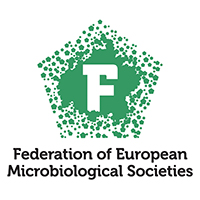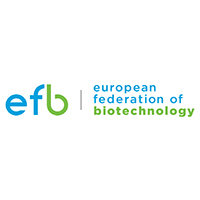A Colloquium: Harnessing Microbial Biotechnology to drive the transition to a bio-based economy and a sustainable society
15 Oct - 16 Oct - Amsterdam, Netherlands

Overview
Organised by the Microbiology Society in association with other not-for-profit organisations, the EFB (the European Federation for Biotechnology), FEMS (the Federation of European Microbiology Societies, and IBISBA (the European Infrastructure for Industrial Biotechnology).
The primary purpose of the Colloquium is to engage diverse perspectives to produce policy recommendations that can be adopted to improve and accelerate the transition to a bio-based economy. Around 40 selected participants representing academia, industry, policy and other sectors are registered to attend. The meeting will use a World Café-style methodology to maximise opportunities to gather and refine perspectives. In brief, on the first afternoon there will be short scene-setting keynotes, with the majority of the work then performed in small-group discussions of topics that will be distributed in advance. On the morning of the second day, we will discuss the outcomes, agree recommendations and work on producing the outputs for dissemination.
The scientific committee* have secured the attendance of four leading experts whose keynote presentations will frame the discussions:
- James Philp, France
- Seren Kell, Good Food Institute
- Claudia Vickers, University of Queensland, Australia
- Christine Lang, Academic, Biotechnologist, Entrepreneur, Germany.
Scientific Committee (representing Microbiology Society, EFB, FEMS and IBISBA):
- John Morrissey, University College Cork, Ireland
- Louise Horsfall, University of Edinburgh, UK
- Diethard Mattanovich, BOKU, Austria
- Paola Branduardi, University of Milan, Bicocca, Italy
- Pau Ferrer, UAB, Spain
- Michael Sauer, OMV AG, Austria
- Tanja Narancic, University College Dublin, Ireland
- Vitor Martins dos Santos, Wageningen University and Research, The Netherlands



With additional funding from:

Programme
|
Tuesday 15th October 2024 |
|
|
13:00 – 14:00 |
Registration, networking and refreshments |
|
14:00 – 14:15 |
Welcome Remarks |
|
14:15 – 14:55 |
Keynote Speakers |
|
14:55 – 16:00 |
World Café 1 – Session 1 |
|
16:00 – 16:30 |
Refreshment Break |
|
16:30 – 17:10 |
Keynote Speakers |
|
17:10 – 18:15 |
World Café 2 – Session 2 |
|
18:15 – 18:30 |
Reporting back |
|
18:30 – 19:30 |
Evening networking |
|
Wednesday 16th October 2024 |
|
|
09:00 – 09:15 |
Welcome and Day 2 outline |
|
09:15 – 10:15 |
Plenary discussion of Day 1 findings |
|
10:15 – 10:45 |
Agreement of recommendations |
|
10:45 – 11:15 |
Refreshment Break |
|
11:15 – 13:00 |
Agreeing and planning dissemination outputs |
|
13:00 – 13:30 |
Closing Remarks |
|
13:30 – 14:30 |
Lunch and Networking |
Discussion Topics for Delegates
Q1: Is the focus on the correct products that are required to achieve sustainability goals?
Rapporteur: Tanja Narancic
The problem is that while the technology to achieve the transition to bio-based chemicals to replace fossil-derived might be here, there is little chance of achieving this in time on our current trajectory. The question here is whether the current focus of the sector on high value, low(er) volume products that can be economically attractive but are not going to have a dramatic change on issues like reducing greenhouse gases, and effecting major shifts from fossil resources is a problem? While relevant for a bio-based economy, perhaps this focus (if that is correct) will not deliver the sustainable transition in time. The question may be what can be done to encourage a shift to more relevant (for sustainability) products? Is it an issue that public funding calls require scale-up (pilot/demo) to be economically sound – which is very difficult in current environment (unlevel playing field versus fossil). If not, what are the current limits that prevent the bioeconomy from taking off?
Q2: What approaches are required to deliver new solutions to produce alternatives to common and critical chemicals in current use?
Rapporteur: Vitor Martins dos Santos
There is a specific challenge in developing sustainable alternatives to multiple common chemicals that are likely to become restricted or banned in the near future. Industry already has a good idea of what these compounds/chemicals are (e.g. example: 6-phenyl phenylenediamine (6PPD) for tyre industry; PFAS (per- and poly-fluoroalkylated substances). Is it possible to produce chemical intermediates using biotechnology and be competitive with chemical technologies? If so, which intermediates should we start investing in to demonstrate feasibility? Can industrial biotechnology delivers solutions or will this require the use of convergent technologies and approaches that link electro chemistry, organic chemistry, biotechnology, and other disciplines? Would it make sense to launch some common initiative for concentrating efforts and resources on these molecules/compounds?
Q3: Is adequate consideration given to the full impact of substrates/feedstocks that are intended to serve for the production of large quantities of bio-based products?
Rapporteur: Paola Branduardi
A sustainable bio-based economy will required large amounts of feedstocks that are sourced sustainably. The traditional first generation feedstocks are mainly sugars derived from dedicated agricultural production. But, with the success of exemplary industrial bioprocesses we hear from agronomists that biotechnology is becoming a significant competitor to food production for land use. Rolling out large scale production of biobased chemicals and fuels will likely not be sustainable with agricultural feedstocks. There are 2nd and 3rd generation feedstocks (lignocellulose, waste, algae, …) that have their own challenges as well. For example, availability, continuity and logistics of biomass as a 2G feedstock. There are also questions around legislation, the definition of some biomasses can limit their upcycling. (e.g. “waste” vs “residual biomass”). Increasingly, attention to coming to on CO2 as a sustainable substrate. But in considering any or all of these, is there sufficient consideration give on environmental impacts, energy requirements, security of supply, consistency, and economics?
Q4: What are the challenges to implementing non-agricultural food production on large scale?
Rapporteur: Diethard Mattanovich
Ultimately, arable land is limited and, given the damage inflicted by climate change, is unlikely to increase. Furthermore, traditional food production is one of the large emitters of greenhouse gas, so that a transition to new, net-zero production of food and feed appears timely. There is an ambition to produce food on a large scale using new technologies such as precision fermentation and cellular agriculture. For this to be meaningful as an alternative to traditional animal-based agriculture the scale must be massive. But there are many challenges of a technical and non-technical nature before this can be achieved – for example, quality, safety, security of supply; consumer acceptance; regulatory and political considerations; large scale industrial demands: energy; fermentation capacity; economics.
Q5: What type of industrial ecosystems are required to support the future sustainable biomanufacturing sector? How will these differ from the fossil-based ecosystem?
Rapporteur: Pau Ferrer
Traditional industrial ecosystems developed over the past century around the use of fossil resources for fuels and chemicals. But new sustainable biomanufacturing might be required a completely new ecosystem – or perhaps, it can be achieved by reconfiguring existing ecosystems.
Some (but not all) considerations:
- The investments necessary for the construction of the plants and consequently the high costs of the products obtained from renewable sources is a challenge.
- How can the market development limits due to the higher costs of products obtained from renewable sources be overcome?
- How could European policy help the development of the bioeconomy? With what tools?
- Measurement of environmental impacts. The current rules were designed to measure the impacts of fossil products. The application of the current rules does not allow the valorisation of origin from renewable sources. Is it possible to intervene on the regulations and define the impact assessment criteria for products from renewable sources?
- Is there a political will to reallocate very large subsidies that the fossil-based sector currently enjoys?
Q6: What innovations or technologies are required to deliver a step change in the rate at which the sustainable transition happens?
Rapporteur: Louise Horsfall
We are clearly moving too slowly to make the required transitions. Are there new technologies or approaches coming (or needed) that will lead to a massive step change or will things continue to be incremental? Some examples where technology could have an impact might be AI, Digitalisation, Automation, New fermentation processes (e.g. continuous fermentation), Distributed biomanufacturing. But what else can might be coming in the future. And are there non-technological innovations that can shift the dial?
Accommodation
The venue is conveniently located in the heart of the city, directly opposite Amsterdam Central Station. You'll find plenty of accommodation options nearby to suit your preferences. Please note that travel and accommodation costs are not covered by your attendance.
To support you in securing your accommodation please see the below link to our booking and accommodation services via First Choice.
Dinner on 15 October
We are pleased to inform you that we have reserved a table for a dinner on Tuesday 15 October at 20:15, for those of you who would like to take the opportunity to socialise and network with other attendees in a more relaxed setting.
Please note that attendees will be responsible for paying for their dinner and drinks.
The dinner will be held at I Dock Amsterdam
Location: I Dock Amsterdam, IJdok 4, 1013 MM Amsterdam
Menu: 3-course dinner priced at €49.50 per person
Starter: Tuna, Mango, wakame and pearl couscous
Main course: Duck confit, barley and vegetable
Dessert: Chocolate bar with chocolate ice cream
The restaurant are happy to accommodate specific dietary requirements. Please let us know your requirements when you confirm your attendance.
To confirm your attendance for the dinner, please let us know by Friday 4 October 2024.
We look forward to seeing you there!
